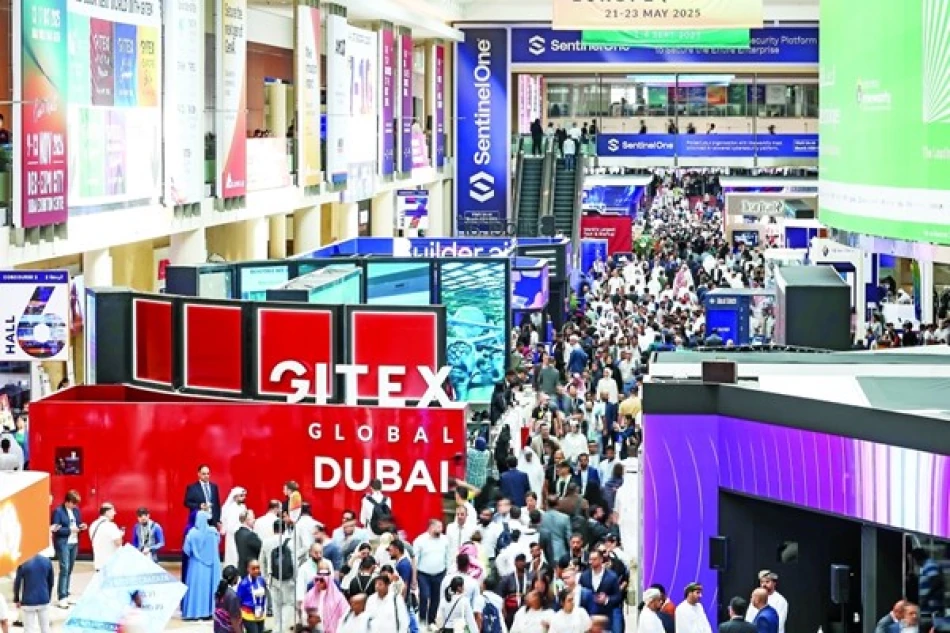
Dubai World Trade Centre Hosts Over 135 Events in the Second Half
Dubai World Trade Centre Unveils Ambitious 135-Event Calendar to Cement Global Business Hub Status
Dubai World Trade Centre is rolling out an unprecedented lineup of 135 events across the final four months of 2025, spanning technology, sustainability, healthcare, and finance sectors. This aggressive programming strategy reflects Dubai's calculated push to solidify its position among the world's top three economic cities while capitalizing on the post-pandemic recovery in business travel and international trade exhibitions.
Strategic Timing Aligns with Dubai's Economic Vision
The packed schedule directly supports Dubai's D33 economic agenda, which aims to establish the emirate as one of the world's three leading economic centers by 2033. Maher Julfar, Executive Vice President at the centre, emphasized that the robust first-half performance has enabled this ambitious second-half expansion, targeting event organizers, exhibitors, and visitors from across the globe.
This timing is particularly strategic as global business travel rebounds and companies seek neutral, accessible venues for international gatherings. Dubai's geographic position between Europe, Asia, and Africa, combined with its visa-friendly policies, positions it to capture market share from traditional hubs like Singapore and Hong Kong, which are still managing post-pandemic restrictions.
Technology Sector Takes Center Stage
GITEX Global Returns as Flagship Event
The crown jewel of the calendar remains GITEX Global (October 13-17), billed as the world's largest technology event. This year's edition will spotlight artificial intelligence, fintech, healthcare technology, and smart cities—sectors where the UAE has invested heavily through initiatives like the UAE AI Strategy 2031 and Dubai Smart City project.
The emphasis on AI and fintech aligns with regional trends, as Gulf states compete to become technology leaders. Saudi Arabia's NEOM project and Qatar's National Vision 2030 create a regional ecosystem where Dubai must demonstrate continued innovation leadership to maintain its edge.
Diversified Sector Approach Reduces Risk
Healthcare and Sustainability Drive Growth
Beyond technology, the calendar reflects Dubai's diversification strategy with significant healthcare programming, including the 19th World Congress of Neurosurgery (December 1-5) and multiple medical conferences throughout the period. This positions Dubai as a medical tourism and conference destination, competing with established hubs like Bangkok and Singapore.
Environmental events like WETEX (September 30-October 2) and the Global Green Economy Summit (October 1-2) capitalize on the UAE's hosting of COP28 and its net-zero by 2050 commitment. These events attract international climate finance and clean technology companies seeking Middle East market entry.
Market Implications and Economic Impact
Revenue Diversification Strategy
The event density suggests confidence in sustained demand for business travel and face-to-face networking, despite digital alternatives that gained prominence during the pandemic. For Dubai's economy, this represents a significant revenue stream through hotel bookings, retail spending, and business services.
The construction sector receives particular attention with The Big 5 exhibition and related building industry events in November. This timing coincides with Saudi Arabia's Vision 2030 infrastructure projects and regional construction booms, positioning Dubai companies to capture cross-border opportunities.
Competitive Positioning
Dubai's approach contrasts with other regional business hubs. While Abu Dhabi focuses on energy and finance, and Riyadh builds new conference infrastructure, Dubai leverages its established facilities and international connectivity to maximize event frequency and diversity.
The 135-event target significantly exceeds typical conference center programming, suggesting either aggressive market capture or potential oversaturation risks. Success will depend on maintaining quality while scaling quantity, particularly in attracting high-value international attendees rather than regional participants only.
Looking Forward: Sustainability of Growth
This ambitious programming tests Dubai's infrastructure capacity and market appetite. The concentration of events may strain hotel availability and transportation systems, potentially driving up costs for attendees. However, it also creates networking synergies where business travelers can attend multiple relevant events during single trips.
The diverse sector mix—from paper manufacturing to neurosurgery—demonstrates confidence in Dubai's ability to serve niche markets alongside major international exhibitions. This strategy reduces dependence on any single industry while maximizing facility utilization throughout the year.
Success of this expanded calendar will likely influence 2026 planning and establish benchmarks for other regional business centers. The ultimate measure will be whether increased quantity translates to sustained quality and genuine economic impact beyond headline attendance figures.
Most Viewed News

 Layla Al Mansoori
Layla Al Mansoori






